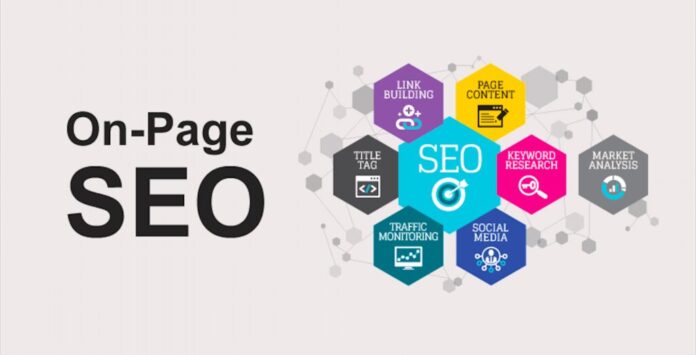When it comes to digital marketing, SEO remains a cornerstone that many tend to overlook or underestimate. The reason? Its complexity can be daunting, and its rules seem to be written in the shifting sands of the internet’s vast beaches. Yet, understanding and implementing solid SEO strategies is paramount if you aim to have your website not just float but sail smoothly across the high seas of search engine results. In this comprehensive guide, we’ll explore six essential SEO tips that are too valuable to ignore, including how to choose the right SEO agency to set your website up for success.
1. Mastering Keyword Research: The Foundation of SEO

Keywords are the bedrock of SEO. They act as the guiding stars that lead potential customers to your website. However, mastering keyword research is more than just guessing what your audience might type into the search bar. It involves an in-depth understanding of search intent, keyword relevance, and competition.
Start by brainstorming a list of topics relevant to your audience and business. Tools like Google Keyword Planner, Ahrefs, or SEMrush can help you expand this list by showing related search terms that you might not have considered. Remember, it’s not just about the most searched terms; it’s about the terms that will bring the most engaged visitors to your site.
When you analyze keywords, look at the search volume and keyword difficulty. High search volumes indicate popularity, but they also mean high competition. Sometimes, targeting long-tail keywords — more specific phrases with lower search volumes — can yield better results as they attract more qualified traffic and have less competition.
2. Develop Quality Content Around Keywords

While keywords are the map, content is the territory. In the world of SEO, content is king, but not all content wears the crown equally. To stand out, you must create content that is not just relevant but also valuable and engaging.
This means writing articles, blog posts, or web pages that answer questions, provide solutions, or entertain, always prioritizing the user’s experience. Quality content is original, well-researched, and reflects your brand’s voice. It is also updated regularly to ensure it remains relevant and useful.
The structure of your content is equally important. Use headings and subheadings (H1, H2, H3 tags) to organize your content, making it easier for both readers and search engines to follow. Include internal links to other pages on your website to guide visitors and search engine crawlers to more of your content, which can lead to longer visit durations and a lower bounce rate.
3. Learn About On-Page SEO

On-page SEO is about ensuring the individual pages of your website are attractive to search engines. Each page should have a clear purpose and target a specific cluster of keywords. Here, the details matter. Everything from title tags and meta descriptions to alt attributes and URLs, every element should be optimized.
Title tags are the headlines of your search listing and should be written to capture attention while including your main keyword. Meta descriptions, while not a direct ranking factor, influence click-through rates with a concise summary of the page content. They should be compelling and utilize your targeted keywords effectively. URLs should be clean and keyword-rich. Avoid long strings of numbers or random characters. A clear, descriptive URL not only contributes to better ranking but also improves user experience.
4. Navigate the Technical Terrain of SEO

Technical SEO can be likened to the inner workings of a watch—complex, precise, and essential for overall performance. It’s about optimizing the infrastructure of your website so that search engines can crawl and index your content without a hitch. Start by ensuring your site has a logical structure. A well-organized site with a clear hierarchy improves user experience and search engine indexing.
Your website’s loading speed is another crucial factor. A slow site can harm your bounce rate and rankings, as users are quick to leave a page that doesn’t load promptly. Use tools like Google’s PageSpeed Insights to identify and rectify any issues that could be slowing down your site.
Don’t forget mobile optimization. With the majority of searches conducted on mobile devices, having a website that’s mobile-friendly is no longer optional. Google’s shift to mobile-first indexing means that your mobile site’s performance now determines your search rankings.
5. The Power of Analytics: Measuring SEO Success
What can’t be measured, can’t be managed—or improved. Analytics are the compass that guides your SEO strategy, showing you where you’re succeeding and where you’re off course. Setting up tools like Google Analytics and Google Search Console will provide you with a wealth of data about your website’s performance.
Monitor your organic traffic to see how many visitors are coming to your site from search engines. Look at your most visited pages, the keywords that are driving traffic, and your bounce rates. These metrics will tell you what’s working and what’s not, allowing you to optimize effectively.
Tracking conversions is also critical. Whether it’s filling out a contact form, making a purchase, or signing up for a newsletter, knowing how well your site turns visitors into customers is vital for assessing the ROI of your SEO efforts. Regularly reviewing and acting on your analytics will keep your SEO strategy focused and forward-moving.
6. Choosing the Right SEO Agency

Finding the right SEO agency is akin to finding a business partner who is just as invested in your success as you are. This agency will be the navigator for your online presence, steering your SEO strategy through the tumultuous waters of algorithm updates and market shifts. Start by looking for an agency with a proven track record. Ask for case studies, client testimonials, and references.
The right agency should offer transparency about their methods and reporting. Be wary of those who promise instant results or use black-hat SEO techniques that can ultimately penalize your website. Instead, look for agencies that adhere to Google’s webmaster guidelines and build strategies for long-term success.
Communication is essential. Your chosen SEO agency should be accessible, responsive, and willing to explain their strategies and the reasoning behind them. Furthermore, they should understand your industry and be able to tailor their approach to your unique business needs.
Remember, SEO is not a ‘one size fits all’ solution. Therefore, avoid agencies that offer cookie-cutter packages. You need a partner that will craft a custom strategy that aligns with your business goals, budget, and timeline.









